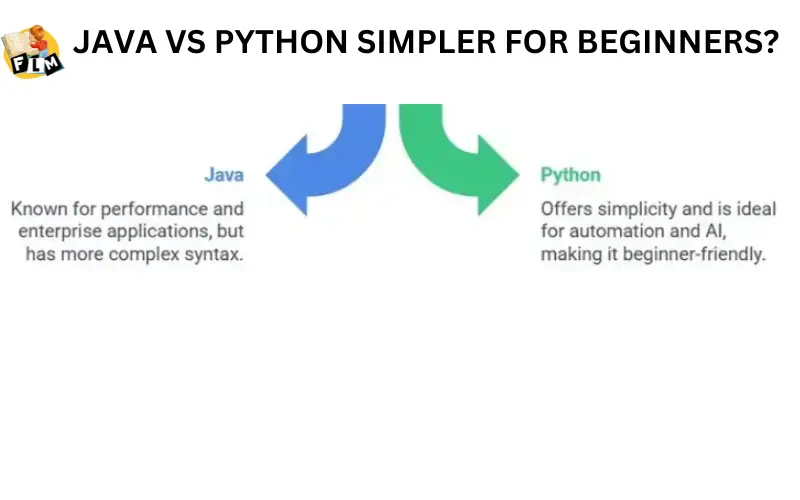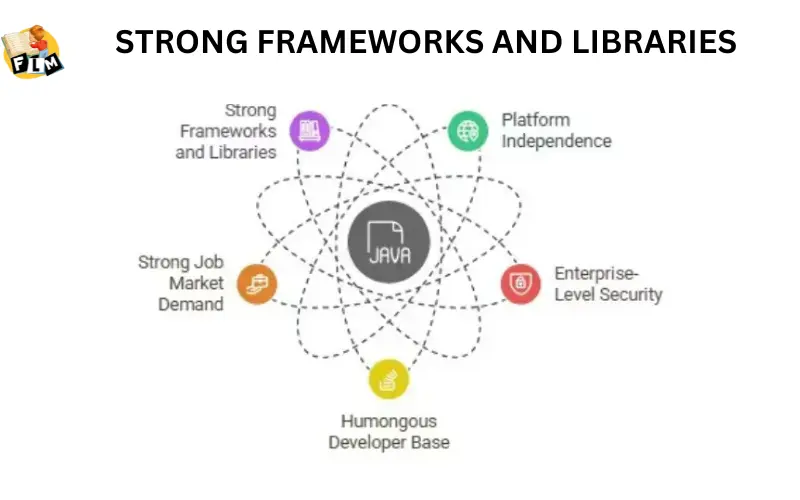Java was the unchallenged monarch of programming languages for a very long time, driving business applications, mobile phones, and cloud computing. But with the advent of new programming languages, developers were eager to understand what Java vs Other Languages was all about in terms of performance, flexibility, and employment opportunities
Java vs Other Languages Key Differences Explained
While comparing Java with Other Languages, there are certain parameters that need to be balanced against each other while comparing, including execution speed, learning ease, market demand, and scalability
Java is an object-oriented general-purpose language on the Java Virtual Machine (JVM) and therefore highly portable and efficient. There are a few languages which do possess some merit of their own which would be more suitable for certain applications
Let us contrast Java with some of the finest programming languages that are most sought after in the market today
Java vs Python Simpler for Beginners?

Java and Python are among the most in-demand programming languages. Whereas Java is famous for its ruggedness and quickness, Python is easy and easy to work with
Key Differences
- Performance: Java is quicker than Python because it’s a compiled language and therefore quicker in performance compared to Python, an interpreted language and therefore slower in performance
- Syntax: Python is easier in syntax for a beginner, while Java comprises boilerplate code in greater amounts
Use Cases
- Java is used in enterprise application development, Android app development, and server-side web development
- Python is used in automation, data science, machine
- Python is used in automation, data science, machine learning (ML),
- artificial intelligence (AI).
Which One to Use?
- If you are creating large applications, money applications, or Android applications, Java is the best for you.
- If you work with data science, AI, or automation, Python is perfect for you
Java vs C++: Which Provides Improved Performance?
Both Java and C++ are alike in that they are object-oriented but where Java is different from C++ is when interacting with the system and memory management
Key Differences
- Memory Management: Java encourages automatic garbage collection, while C++ memory management is manual
- Speed: C++ is faster since it gets compiled into machine code directly, while Java executes on the JVM.
Use Cases
- Java is employed in enterprise software, backend development, and cloud computing
- C++ is employed in game development, system programming, and real-time systems
Which One to Use?
- Use C++ if you require raw performance, system access, or game development
- Use Java if you require portability, scalability, and enterprise software
Java vs JavaScript Backend vs Frontend Development
Java and JavaScript are confusing the new developers but are both being used for two distinct purposes. Java is a general-purpose server-side programming language, whereas JavaScript is a little more client-side web application programming language
Key Differences
- Type System: Java is statically typed, whereas JavaScript is dynamically typed
- Running: Java runs on the JVM, whereas JavaScript runs on the web browsers with the benefit of full-stack programming with Node.js
Use Cases
- Java is most appropriately used for enterprise software, backend, and Android
- JavaScript is most appropriately used for web development, interactive websites, and full-stack software
Which One to Use?
- If you are creating something web-based, JavaScript will do
- If you are creating scalable backend systems and Android, Java is the best
Java vs Go (Golang)
Go (Golang) is a completely new language developed by Google to offer concurrency and scalability in the best possible manner. How is it different from Java?
Key Differences
- Performance: Go is compiled to machine code directly and thus is quicker than Java, which executes inside the JVM
- Concurrency: Go employs lightweight goroutines for multi-threading, while Java employs normal threads
Use Cases:
- Java is extensively used in banking, e-commerce, and enterprise software
- Go is extensively used in cloud computing, microservices, and backend infrastructure
Which One to Use?
- If you need a mainstream, general-purpose programming language for large applications, use Java
- If you’re developing cloud-native apps and microservices, Go is the best
Why Java Is the King of the Tech World
All these rival languages aside, Java is still close to developers’ hearts. Here’s why
Platform Independence
Java Write Once, Run Anywhere (WORA) mission guarantees that the Java application developed once will be able to run on any platform on which JVM is implemented
Enterprise-Level Security
Java inherent robust security features, and thus, business applications and banking applications have it as their top priority
Humongous Developer Base
Java boasts a huge global community of developers, so there will always be someone available to help, patches are released, and there are plenty of guides
Strong Job Market Demand
Java remains one of the most in-demand programming languages for software development, cloud computing, and AI applications
Strong Frameworks and Libraries

Java is backed by Spring, Hibernate, and Jakarta EE so it is the backbone for most of the web and enterprise applications
Java vs Other Languages What You Want
Your Java vs Other Languages choice is determined by your career objectives
- If you want to build enterprise applications, mobile apps, or scalable backends, use Java
- If you are dealing with data science, AI, or automation, use Python
- If you are interested in applications of high performance, games, or operating system programming, use C++
- If frontend and full-stack web development is what you like, then use JavaScript.
- Use Go when you are creating cloud applications and microservices
Conclusion
No matter whether you program in another language or not, you have pros and cons. Java is a miracle worker because it is portable, safe, and sound
If you need a program language that will grow, prove to be enduring, and be versatile, then Java has to be your first preference. Although different program languages have their special domain-specific application where they are tailored, Java continues to power enterprise applications, money programs, and mobile programs globally
Suggested Articles
- How to Network Effectively as a Java Developer
- Effective Learning Strategies for Java
- How to Find Support in the Java Developer Community
Future-Proof Your Career with FLM’s AI-Powered Java Full Stack Development
Java Full Stack Developer Training
Learn Java, Spring Boot, React.js, SQL, and AI automation to build powerful web applications. AI is transforming software development, and companies need skilled Java full stack developers who can integrate AI-driven solutions. This 5+ month live, interactive training will help you master real-world projects, automation tools, and industry best practices.
What You’ll Gain?
- High Demand – AI Skills Give You a Competitive Edge
- Earn ₹12 LPA+ with Java Full Stack & AI Expertise
- 100% Live, Expert-Led Training
- AI-Powered Development – Automate Coding & Debugging
- 7 Major & 7 Mini Real-World Projects for Hands-On Experience
- Mock Interviews, Resume Building & Career Guidance
- Exclusive: 2-Year Recording Access for the First 100 Enrollees
- Job-Ready Curriculum with Real-World Applications
Unlock your future with FLM’s AI-Powered Java Full Stack Development — limited seats remaining! – Enroll Now
Visit: frontlinesedutech.com | Click Here to Enroll
WhatsApp: 8333077727

